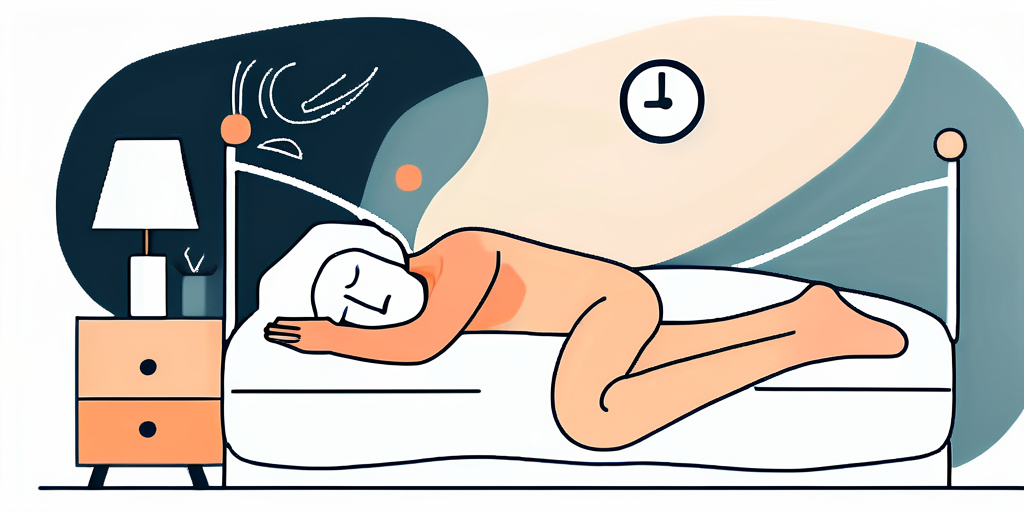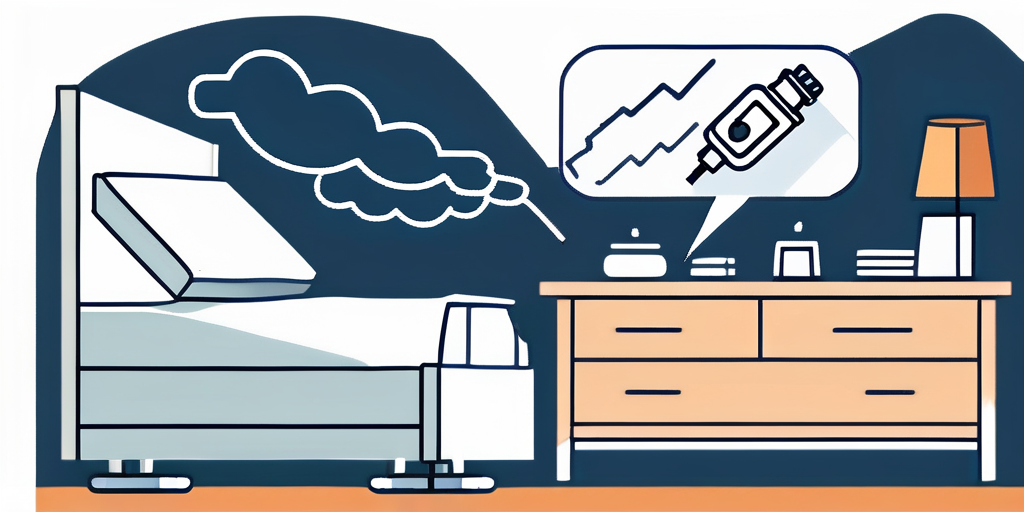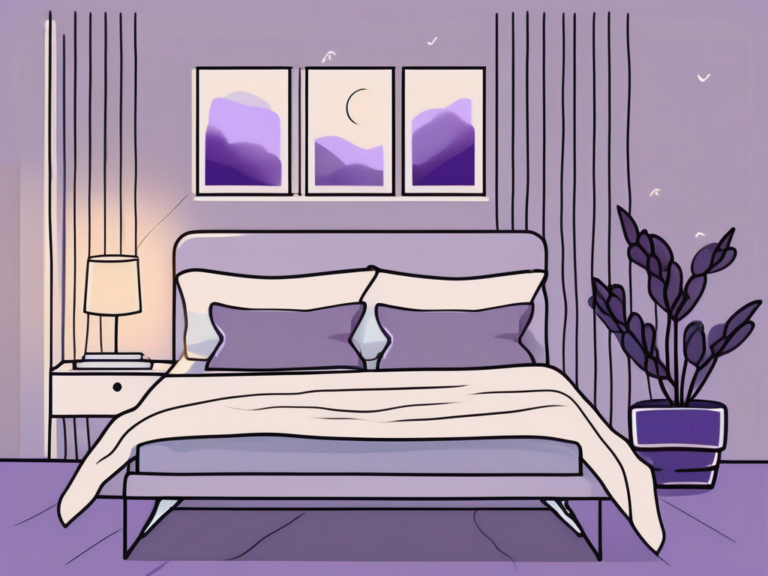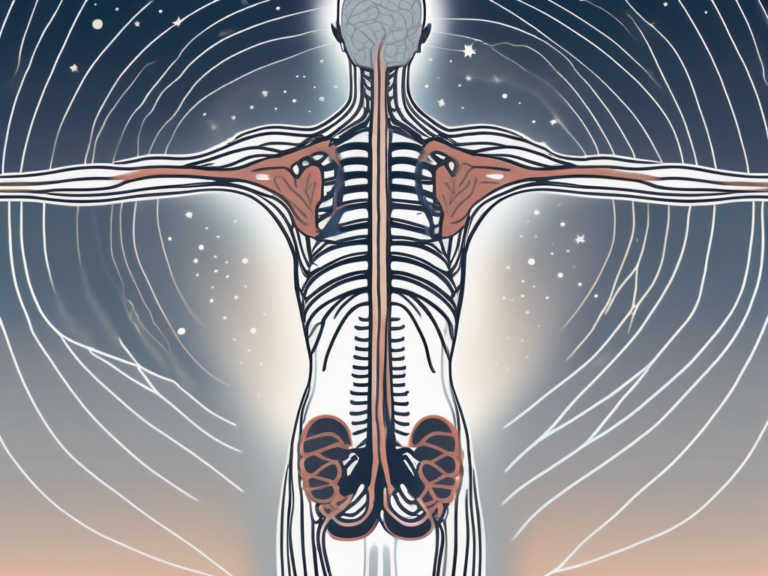can sleep apnea cause seizures
Sleep apnea is a sleep disorder that affects millions of people worldwide. It is characterized by pauses in breathing or shallow breaths during sleep, leading to disruptions in the quality of rest. While sleep apnea can have various health implications, one question that many people have is whether it can cause seizures. In this article, we will explore the connection between sleep apnea and seizures, understand the impact of sleep apnea on the brain, and examine the scientific research on this topic. We will also delve into the diagnosis and treatment of sleep apnea and discuss how to live with this condition while managing seizures. If you or someone you know is affected by sleep apnea or seizures, this article aims to provide you with valuable insights and helpful strategies to effectively deal with both.
Understanding Sleep Apnea
Sleep apnea is a complex sleep disorder that disrupts the normal breathing pattern during sleep. It can occur in different forms, such as obstructive sleep apnea (OSA), central sleep apnea (CSA), and complex sleep apnea syndrome (CSAS). OSA is the most common type, typically caused by the relaxation of muscles in the throat that block the airway. CSA, on the other hand, is related to the brain’s inability to send proper signals for breathing. CSAS is a combination of both OSA and CSA.

People with sleep apnea often experience snoring, excessive daytime sleepiness, disrupted sleep patterns, and frequent awakenings during the night. These symptoms can profoundly impact their overall well-being, making it essential to seek proper diagnosis and treatment to improve the quality of life.
What is Sleep Apnea?
Sleep apnea is a sleep disorder characterized by recurrent pauses in breathing or shallow breaths during sleep. These breathing interruptions, known as apneas, can last for seconds to minutes and occur multiple times throughout the night.
When breathing is disrupted, the oxygen level in the blood decreases, and carbon dioxide levels rise, triggering the brain to wake the individual up to restore normal breathing. As a result, sleep is fragmented, preventing the person from getting adequate restful sleep.
Types of Sleep Apnea
There are three main types of sleep apnea: obstructive, central, and complex sleep apnea syndrome. Obstructive sleep apnea is the most common form and occurs when the muscles in the throat relax, leading to partial or complete blockage of the airway. Central sleep apnea is characterized by a failure of the brain to transmit proper signals to the muscles that control breathing. Complex sleep apnea syndrome is a combination of obstructive and central sleep apnea.
Although the mechanisms behind each type of sleep apnea differ, the end result is the same: disturbances in breathing patterns during sleep and a lack of restorative rest.
Symptoms and Risks of Sleep Apnea
Sleep apnea can manifest itself through various symptoms, such as loud snoring, gasping or choking during sleep, morning headaches, daytime sleepiness, irritability, and difficulty concentrating. If left untreated, sleep apnea can lead to more serious health risks, including high blood pressure, heart disease, stroke, and diabetes.
If you or your loved ones are experiencing any of the symptoms mentioned above, it is crucial to consult a healthcare professional for a proper diagnosis and appropriate treatment options.
Additionally, it is worth noting that sleep apnea can affect people of all ages, including children. In children, sleep apnea can lead to behavioral problems, poor academic performance, and even growth issues. Therefore, it is important for parents to be aware of the signs and symptoms of sleep apnea in their children and seek medical attention if necessary.
Furthermore, certain lifestyle factors can increase the risk of developing sleep apnea. Obesity, smoking, excessive alcohol consumption, and sedentary lifestyle are all known risk factors. By addressing these factors and making positive changes, individuals can significantly reduce their risk of developing sleep apnea and improve their overall sleep quality.
The Link Between Sleep Apnea and Seizures
Scientific studies have explored the potential connection between sleep apnea and seizures. While research in this area is ongoing, some evidence suggests that sleep apnea can influence the occurrence of seizures, particularly in individuals with epilepsy.
How Sleep Apnea Affects the Brain
During an apnea episode, the brain’s oxygen levels decrease, and carbon dioxide levels rise. This fluctuation in blood gases can have detrimental effects on the brain, affecting its overall function and stability. The brain’s susceptibility to seizures may be increased due to the disrupted oxygen supply and altered electrical activity caused by sleep apnea.
Furthermore, sleep deprivation resulting from sleep apnea can contribute to an increased risk of seizures. Lack of proper sleep can lower the seizure threshold, making individuals with epilepsy more vulnerable to experiencing seizures.
Sleep Apnea and Epilepsy: Is there a Connection?
Epilepsy is a neurological disorder characterized by recurrent seizures. Research suggests that individuals with epilepsy may have a higher prevalence of sleep apnea compared to the general population. Sleep apnea not only impacts the frequency and severity of seizures but also affects the overall quality of life for those living with epilepsy.
It is essential for individuals with epilepsy to be evaluated for sleep apnea and receive appropriate treatment to minimize seizure activity and optimize their well-being.
Scientific Research on Sleep Apnea and Seizures
Various scientific studies have examined the link between sleep apnea and seizures. One study published in the journal Sleep Medicine found that individuals with sleep apnea were more likely to have seizures compared to those without sleep apnea. Another study published in the medical journal Epilepsia reported an increased frequency of seizures in participants with sleep apnea.
While these studies highlight the correlation between sleep apnea and seizures, further research is needed to better understand the mechanisms and establish definitive causality.
Moreover, it is important to note that sleep apnea is not the only sleep disorder that can impact seizure activity. Other sleep disorders, such as insomnia and restless legs syndrome, have also been associated with an increased risk of seizures. These disorders can disrupt sleep patterns and affect the overall quality of sleep, potentially triggering seizures in individuals with epilepsy.
Additionally, the relationship between sleep apnea and seizures may vary depending on the type of epilepsy an individual has. For example, studies have shown that individuals with temporal lobe epilepsy, a common form of epilepsy characterized by seizures originating in the temporal lobe of the brain, may be more prone to sleep apnea. The interaction between these two conditions may involve complex physiological and neurological factors that require further investigation.
Understanding the link between sleep apnea and seizures is crucial for healthcare professionals in managing and treating epilepsy effectively. By addressing sleep apnea and ensuring adequate sleep, it may be possible to reduce the frequency and severity of seizures, improving the overall quality of life for individuals with epilepsy.
Diagnosis and Treatment
If you suspect that you or a loved one may have sleep apnea, it is crucial to seek a professional diagnosis from a sleep specialist. The diagnosis process typically involves a comprehensive evaluation of symptoms, medical history, physical examination, and sleep studies.

During the evaluation, the sleep specialist will carefully listen to your concerns and ask detailed questions about your sleep patterns and daytime symptoms. They will also review your medical history to identify any underlying conditions that may contribute to sleep apnea, such as obesity, hypertension, or nasal congestion.
In addition to the evaluation, sleep studies, such as polysomnography, are commonly used to diagnose sleep apnea. These studies monitor various physiological parameters during sleep, including brain waves, heart rate, breathing patterns, and oxygen levels, to assess the severity of sleep apnea. The sleep specialist will analyze the data collected from the sleep study to determine the frequency and duration of apneas and hypopneas, which are the hallmark characteristics of sleep apnea.
Based on the results of the sleep study, healthcare professionals can determine the most appropriate treatment options tailored to the individual’s needs. Treatment for sleep apnea may vary depending on its severity and underlying causes.
Treatment Options for Sleep Apnea
In mild cases of sleep apnea, lifestyle changes can be beneficial. These changes may include weight loss, regular exercise, and practicing good sleep hygiene. Maintaining a healthy weight can help reduce the amount of excess tissue in the throat that can contribute to airway obstruction during sleep. Regular exercise can also improve overall cardiovascular health, which can have a positive impact on sleep apnea symptoms.
Avoiding alcohol, tobacco, and sedatives before sleep is also recommended, as these substances can relax the muscles in the throat and exacerbate sleep apnea symptoms. Making these lifestyle changes can significantly improve sleep quality and reduce the frequency of apneas and hypopneas.
In moderate to severe cases, continuous positive airway pressure (CPAP) therapy is often recommended. CPAP involves wearing a mask connected to a machine that delivers a constant flow of air, keeping the airway open and preventing apneas. This treatment is highly effective in reducing sleep apnea symptoms and improving sleep quality.
For individuals who cannot tolerate CPAP or prefer alternative options, there are other treatment options available. Oral appliances, such as mandibular advancement devices, can help keep the airway open by repositioning the jaw during sleep. Positional therapy, which involves sleeping in specific positions to minimize airway obstruction, can also be beneficial for some individuals.
In certain cases, surgery may be recommended to address structural abnormalities that contribute to sleep apnea. Surgical options can vary and may involve removing excess tissue, repositioning the jaw, or correcting nasal obstructions. The decision to undergo surgery is typically made after careful consideration of the individual’s specific needs and preferences.
Managing Seizures in Sleep Apnea Patients
For individuals with sleep apnea who experience seizures, effective management of both conditions is essential for overall well-being. Collaborative care involving sleep specialists and neurologists is crucial to ensure comprehensive treatment tailored to the individual’s unique needs.
Seizure medications and treatment protocols may need to be adjusted to account for the potential interaction with sleep apnea. It is vital to communicate openly with healthcare professionals to optimize seizure control while addressing sleep apnea symptoms.
Furthermore, individuals with sleep apnea and seizures may benefit from additional lifestyle modifications to reduce seizure triggers. This may include ensuring consistent sleep schedules, practicing stress-reduction techniques, and avoiding known triggers such as flashing lights or certain medications.
By addressing both sleep apnea and seizures, individuals can experience improved quality of life and better overall health. Regular follow-up appointments with healthcare professionals are essential to monitor treatment effectiveness and make any necessary adjustments.
Living with Sleep Apnea and Seizures
Coping with sleep apnea and seizures can be challenging, but there are strategies and resources available to improve your quality of life.

Living with sleep apnea and seizures can have a significant impact on your daily life. The constant worry about experiencing a seizure or struggling to get a good night’s sleep can be overwhelming. However, there are lifestyle changes and coping strategies that can help you manage these conditions effectively.
Lifestyle Changes for Better Sleep Health
Adopting healthy lifestyle habits can positively impact both sleep apnea and seizure management. Maintaining a regular sleep schedule is crucial, as it helps regulate your body’s internal clock and promotes better sleep quality. Creating a relaxing pre-sleep routine, such as reading a book or taking a warm bath, can signal to your body that it’s time to wind down and prepare for sleep. Additionally, ensuring a comfortable sleep environment, with a supportive mattress and pillows, can help alleviate any discomfort that may contribute to sleep disturbances.
Furthermore, maintaining a healthy weight is essential for managing sleep apnea and seizures. Excess weight can put pressure on your airways, leading to breathing difficulties during sleep and increasing the risk of apnea episodes. Avoiding excessive caffeine and alcohol is also recommended, as they can disrupt your sleep patterns and potentially trigger seizures. Managing stress levels through relaxation techniques, such as deep breathing exercises or meditation, can contribute to overall well-being and improve sleep quality.
Coping Strategies for Seizures
Living with seizures requires adopting coping strategies that can minimize their impact on your daily life. Developing a seizure action plan in consultation with your healthcare provider is essential. This plan outlines steps to take during a seizure, including when to seek medical assistance and who to notify. Wearing medical identification jewelry, such as a bracelet or necklace, can provide crucial information to first responders in case of an emergency.
Educating close contacts, such as family members, friends, and coworkers, about seizure first aid is vital. This knowledge equips them to respond appropriately and provide assistance if you experience a seizure in their presence. Seeking support from epilepsy support groups or counseling services can also be beneficial. These resources offer a safe space to share experiences, gain insights from others who have faced similar challenges, and learn about effective coping strategies.
Support and Resources for Patients and Families
Connecting with support groups and organizations can provide valuable resources and emotional support for individuals with sleep apnea and seizures. These groups offer opportunities to connect with others who share similar experiences, gain insights from their journey, and access information on the latest treatment options and research developments.
Moreover, online resources, educational materials, and helplines are available to provide information and guidance to individuals and their families. These resources can help you stay informed about the latest advancements in sleep apnea and seizure management, as well as provide practical tips for improving your overall well-being.
Living with sleep apnea and seizures can be challenging, but with the right strategies and support, you can navigate through these conditions and improve your quality of life. Remember, you are not alone in this journey, and there is support available to help you overcome the challenges that come with sleep apnea and seizures.






